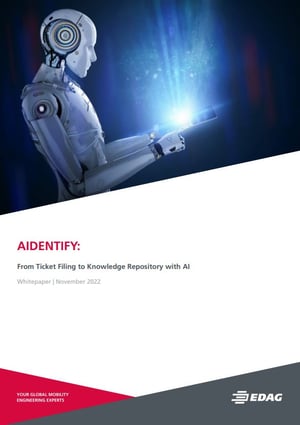Do you know your own knowledge base?

Short technical texts contain a great deal of empirical knowledge belonging to a company's own employees: service tickets and the related documentation of repairs, activity reports from service technicians and so on contain information on the causes of faults and effective solutions. Although this is collected meticulously, it is hardly ever used afterwards.
It is true that, with Natural Language Processing (NLP), we have a powerful tool to open up the valuable practical knowledge contained in these texts and make it usable – at least in theory. In practice, however, there are enormous obstacles obstructing the automated processing of short technical texts. They contain spelling errors, codes, abbreviations, multilingual terms, and colloquialisms; moreover, they are often created by different authors with different background knowledge. Standard NLP approaches come up against their limits here.
Within the framework of the "AIdentify" research project, EDAG Engineering and IT consultants denkbares have developed a way of also making an automobile manufacturer's service tickets, for example, comprehensible to "computer colleagues". The solution lies in a modular pipeline that makes it possible first to preprocess texts and then bundle similar topics. In the process, different concepts for text processing using artificial intelligence (AI) were implemented and compared.
Details of how the pipeline is structured and what results the evaluation of the different approaches to text analysis yielded can be found in our white paper "From Ticket Filing to Knowledge Repository with AI", which can be downloaded here.